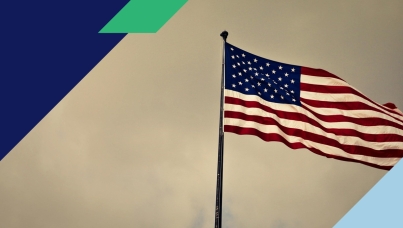Polarization is spilling over into tech, while wokeness stays the same
The Ipsos Consumer Tracker asks Americans questions about culture, the economy and the forces that shape our lives. Here's one thing we learned this week.
Why we asked: As the Trump administration continues to take shape, we will check in from time to time on the topics and questions we asked before inauguration to see if things are shifting.
What we found: There’s a drop in the idea that having tech developed and manufactured in the U.S. should be a national security issue. That’s fueled entirely by Democrats and independents who have had 19-point and 8-point drops, respectively. Does it make sense that actual feelings about AI are driving that? Or is it plausible that this and the dip in Democratic support for Made in the U.S. goods we saw a couple waves ago are a spill-over from the tariff wars? Perhaps suddenly anything that smells of being related to Trump’s various polices is less palatable – even what were previously fairly common-sense ideas like “it’s good to make things here.”
Similarly, we see a 7-point jump in “I am more likely to buy products from a company that has taken a public stand against racism” since December, driven entirely by Democrats likely doubling down against efforts by the administration to remove DEI initiatives from companies. Democrats and Republicans agree that if a company takes a stand on an issue they should stick by it. There are clear implications for brands here, to listen and learn before you respond.
Meanwhile, we asked a question about “wokeness” for the first time since August 2023. Attitudes on that haven’t changed, despite all the conversation and now action on that front. Nearly four in ten say they would consider it an insult to be called “woke” and about the same amount say they would consider it a compliment (there are predictable racial and PID splits on that). One in four (including four in ten independents) still don’t know what that means. When we ask a forced-choice question about what it does mean, two in three define it as, “To be informed, educated on, and aware of social injustices.” And the remaining third say, “To be overly politically correct and police others’ words.”
More insights from this wave of the Ipsos Consumer Tracker:
Vibe Check: Consumers are freaking out about the government
Four in ten admit to churning streaming services
The Ipsos Care-o-Meter: What does America know about vs. what does America care about



